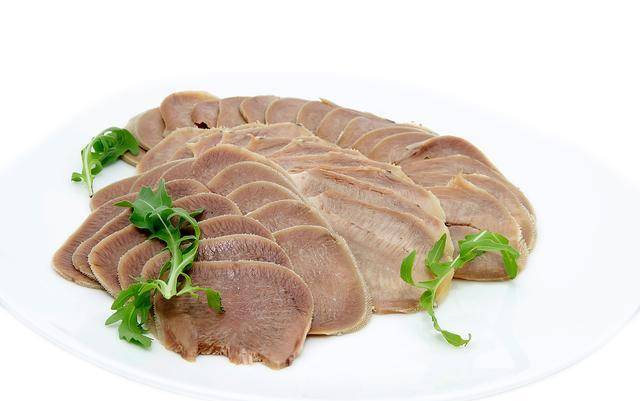Hidden “Blood-Producing Hero” Strikes, Not Red Dates! High Nutrition, Don’t Miss Out
In our daily lives, when it comes to blood nourishment, many people may first think of red dates. Red dates have a long history and are known as “natural vitamin pills,” indeed possessing certain tonifying effects. However, around us, there is actually a hidden “blood-producing hero” with extremely high nutritional value that surpasses red dates in promoting blood production and improving anemia. This magical food is—pork liver.
1. Basic Introduction of Pork Liver
Pork liver, as the name suggests, is the liver part of a pig. The liver is an important organ in the animal body, with functions such as detoxification, metabolism, and blood production. Pork liver is reddish-brown, fine in texture, nutritionally rich, and a delicious dish on people’s dining tables. In China, pork liver has a long history of consumption with various cooking methods such as stir-frying, stewing, boiling, etc., and is highly favored by people.
2. Nutritional Value of Pork Liver
Rich in Iron: Pork liver is an excellent blood tonifier mainly due to its rich iron content. Iron is an essential component of hemoglobin, crucial for maintaining normal blood production function. The iron content in pork liver is much higher than red dates, and is easily absorbed and utilized by the human body, making it an ideal food for iron-deficient anemia patients. High Vitamin A Content: Pork liver is rich in vitamin A, which helps protect vision and maintain skin health. Moderate consumption of pork liver can improve night blindness, dry skin, and make the skin smoother and more delicate. Source of High-Quality Protein: Pork liver contains abundant high-quality protein, playing a significant role in promoting growth, development, and tissue repair. Moreover, the protein in pork liver contains various essential amino acids for the human body, with extremely high nutritional value. Other Trace Elements: Pork liver also contains various trace elements such as zinc, selenium, copper, which are important for maintaining normal physiological functions in the human body and boosting immunity.
3. Blood-Producing Function of Pork Liver
The reason why pork liver is called a “blood-producing hero” is mainly due to its rich iron content and vitamins. Iron is an essential raw material in the blood production process, while vitamins help promote the absorption and utilization of iron. Sufficient intake of iron and vitamins can effectively promote hemoglobin synthesis, enhance blood oxygen carrying capacity, and improve anemia symptoms.
Compared to red dates, pork liver’s advantages in blood production are more pronounced. Firstly, the iron content in pork liver is far higher than red dates with a higher absorption rate. Secondly, the variety and quantity of vitamins in pork liver are richer, promoting a synergistic effect and enhancing the blood-forming effect. Therefore, moderate consumption of pork liver is very beneficial for anemic patients.
4. Cooking Methods and Precautions of Pork Liver
Cooking Methods: There are various ways to cook pork liver, including stir-frying, stewing, boiling, etc. During cooking, it is recommended to pair pork liver with vitamin C-rich vegetables (such as spinach, green peppers, etc.), to enhance the absorption and utilization of iron. Additionally, pork liver can be stewed with red dates, goji berries, and other ingredients, making it both delicious and nourishing. Precautions: Although pork liver has many benefits, it is not suitable for everyone. Firstly, pork liver has a relatively high cholesterol content, so individuals with high blood fat and cholesterol should consume it in moderation. Secondly, as the liver is a detoxification organ, it may contain certain toxins and heavy metals. Hence, it should be thoroughly cleaned and cooked well before consumption to avoid adverse health effects. Lastly, individuals allergic to pork liver should avoid consumption.
5. Selection and Storage of Pork Liver
Selection: When choosing pork liver, look for those that are bright red in color, glossy surface, fine texture, and odorless. Fresh pork liver has higher nutritional value and better taste. Storage: Storing pork liver is relatively simple. Place the pork liver in a sealed bag, remove the air, and refrigerate it in the refrigerator, where it can be stored for 2-3 days. For long-term storage, cut the pork liver into small pieces, freeze it in the freezer, although the texture of frozen pork liver may change.
6. Conclusion and Outlook
As a nutritionally rich food with a significant blood-forming function, pork liver plays an important role in our daily lives. By understanding the nutritional value, blood-forming function, cooking methods, and precautions of pork liver, we can better utilize this “blood-producing hero” to boost our health.
Looking ahead, with the continuous advancement of technology and the increasing demand for health, I believe that the nutritional value and application of pork liver will undergo further in-depth research and exploration. At the same time, we look forward to more innovative pork liver products and cooking methods to meet the growing needs and taste preferences of consumers. Let this “blood-producing hero” shine even brighter in the future of the health food field!


